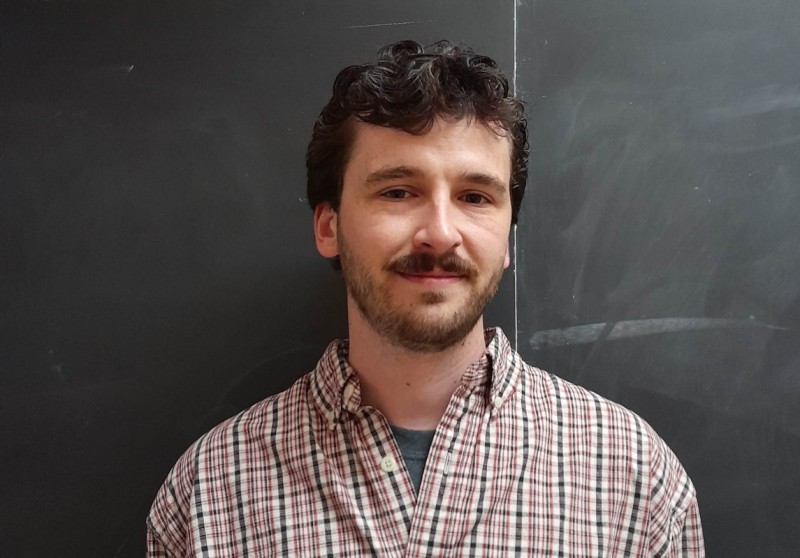More effective medical treatments with fewer side effects. A mathematical problem that, when solved, may lead to innovations in engineering, computer science and more.
The research conducted by two Binghamton University doctoral candidates - Samantha Benjamin in chemistry and Lucas Williams in mathematics - may someday leave a significant mark on the modern world. That's why both were selected for the 2023 SUNY Graduate Research Empowering and Accelerating Talent (GREAT) award, which provides $5,000 in flexible funding for research expenses, professional development and stipend supplements.
The SUNY GREAT awards program, now entering its third year, provides incentives for SUNY graduate students to compete for federal awards sponsored by agencies including the National Science Foundation, National Institutes of Health and U.S. Department of Energy, among others.
"Binghamton University values research with real impact, and these awards prove that our students are doing important work with great potential to affect our world," said Binghamton University President Harvey Stenger. "We congratulate them on this recognition and look forward to what they accomplish in the future."
Antibodies and mathematics
A native of Pennsylvania, Benjamin earned her bachelor's at Hartwick College in Oneonta, where she double-majored in chemistry and theater. After spending a few years working in theater, she shifted back to science and took a job as a lab technician with Associate Professor of Pharmaceutical Sciences L. Nathan Tumey. After a few years, she decided to pursue her doctorate in the field.
Her research centers around antibody drug conjugates, a targeted drug delivery system. The antibodies are programmed, in a sense, to bind to a target - usually a specific protein on a cell type, Benjamin explained. The lab has developed a method to attach a drug at a specific point on the antibody, allowing the drug to access a special pocket there. This pocket has the potential to protect the drug from the body's immune system until it reaches its target, Benjamin explained.
"Our body has the capability of creating immune responses to not only invaders, but also the drugs we take or the food we eat," she said. "If you take an antibody drug conjugate (ADC) and have an immune response, that antibody drug conjugate then becomes more harmful than helpful." With the drug attached at this site on the antibody it could reduce the immune responses created by your body.
Once the antibody is bound to the cell, it's absorbed, the antibody is broken down and the drug is released inside the cell. This greatly reduces unwanted side effects, while keeping the drug in the body longer so it can do its job, she said. ADCs are already used as a treatment for some cancers, and may have potential when it comes to antibiotics, viral infections and autoimmune disorders.

Williams, an Illinois native focused on theoretical mathematics, uses homotopy theory to study fixed-point problems, which are ubiquitous in math and the physical sciences. A branch of mathematics, homotopy theory looks at the shape of spaces and how they can be changed to fit another shape through a process of continuous transformation, such as stretching or squeezing.
Fixed-point problems deal with space. If you apply a map or process to that space, you may see a spot that remains fixed or unchanged, Williams explained.
"For example, if I have a cup of coffee and I just swirl it around, there may be a water molecule that ended up at the exact same place where it started," he said.
How do you find that molecule? One option would be to check the position of every molecule before and after shaking the cup, but that's not practical. Using homotopy theory, Williams works on developing tools and tests to discover those fixed points, with implications in the applied sciences.
For his part, Williams is more interested in the mathematics rather than the real-world applications. He has been interested in homotopy theory from the time he began to get serious about math, he said.
"I like this problem because homotopy theory and algebraic topology are frequently really abstract, which gives this work a more geometric bent, if you will," he said.







